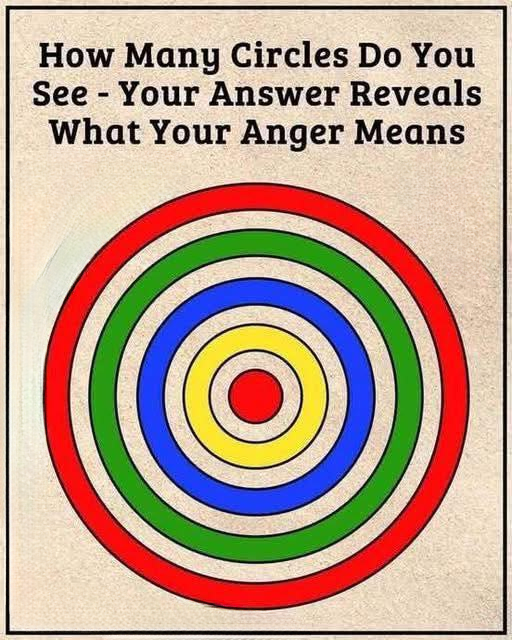Few things grab attention online quite like those quick, visually engaging “personality tests” that claim to reveal something deep about who we are—just by glancing at a picture. Among the countless memes and viral trends, one image has repeatedly made the rounds: a visual illusion of overlapping circles paired with the bold claim, “The number of circles you see shows if you’re a narcissist.” Sound familiar? You’ve probably paused to count the circles, maybe shared it with a friend, or laughed at the idea. It’s simple, fun, and oddly compelling. Why? Because most of us are naturally curious about ourselves—and maybe a little curious about others, too.
This curiosity is what fuels the popularity of this kind of content. Whether it’s a lighthearted quiz about your pizza personality or a more structured tool like the Myers-Briggs test, people are drawn to anything that offers insight into their identity. Some personality tests are rooted in psychology, while others are just for entertainment—but all serve the same basic purpose: to help us feel seen and understood. These tests act as mirrors, reflecting who we are (or who we think we are) back at us.
Take that viral “How Many Circles Do You See?” image. While it’s not scientifically backed, its popularity says a lot about our culture. The idea that a simple image could hint at something as serious as narcissism is both funny and intriguing. People don’t just take the test—they share it, compare results, and joke about the outcome. It’s a social experience disguised as self-reflection.
That said, the topic of narcissism is more complex than a meme lets on. In psychological terms, narcissism involves an inflated self-image, a craving for admiration, and a lack of empathy. In extreme cases, it’s classified as narcissistic personality disorder (NPD), a condition that can significantly impact relationships and quality of life. In everyday language, though, we tend to use “narcissist” more casually—to describe someone who’s overly self-centered or selfie-obsessed. That’s part of why these memes gain traction: they simplify heavy topics and make them easier to talk about.
Still, it’s crucial to understand the limitations of these viral “tests.” They’re not diagnostic tools or scientifically accurate assessments. You won’t get a meaningful evaluation of your personality based on how many shapes you see or which color you pick. But that doesn’t mean they’re completely pointless. On the contrary, they can spark reflection, curiosity, and conversation. If a meme gets someone thinking about their behavior or opens up a dialogue about mental health, that’s a positive outcome.
These viral moments also serve another purpose: connection. In a digital world where loneliness is common, sharing a quirky quiz or meme can create a shared experience. It gives people a reason to interact, joke, and maybe even talk about deeper things. In an online environment often dominated by negativity, a little lighthearted self-exploration can be refreshing.
It’s also important to recognize how social media algorithms play into the success of these posts. Content that triggers emotional responses—whether amusement, curiosity, or surprise—tends to get shared widely. And because personality quizzes are engaging by nature, they’re ideal for going viral.
The bottom line? Enjoy these memes and quizzes for what they are: fun distractions. But don’t confuse them with actual insight. If one sparks something in you—if a result sticks with you—it might be worth exploring further. Read more, reflect, talk to someone, or dig deeper. Real growth and self-understanding come not from memes, but from the work of honest self-reflection.
So next time you see a post claiming your favorite shape reveals your soul type or that your drawing style says something about your future, go ahead—have fun with it. Just remember: real self-awareness isn’t found in how many circles you spot. It’s found in the ongoing journey of learning who you truly are.
